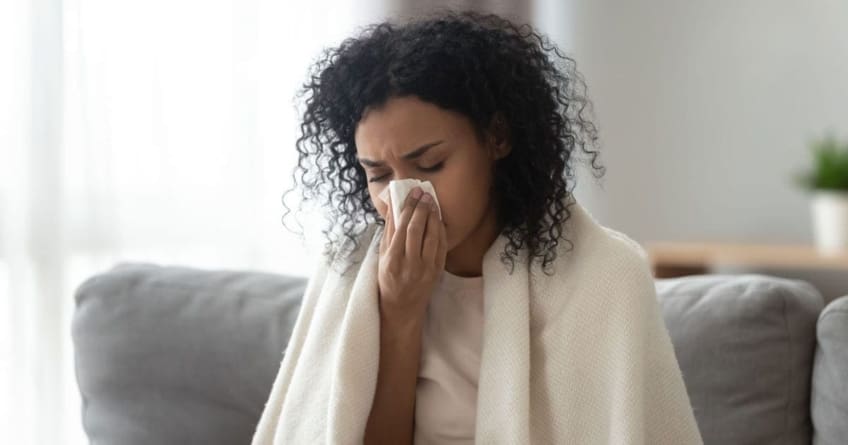
COVID-19, the illness caused by the SARS-CoV-2 virus, is extremely contagious. If you test positive for COVID-19, or suspect that you have it, it is important that you follow recommendations from the Centers for Disease Control and Prevention (CDC) to avoid spreading the infection.
Path to improved health
You need to isolate from other people if you test positive for COVID-19. Many people who have symptoms of COVID-19 are only mildly ill. Their symptoms can easily be managed with over-the-counter medications.
People who are older, have medical conditions, or have not been vaccinated are at higher risk for severe symptoms. Contact your doctor immediately if your symptoms worsen or you have a hard time breathing.
It is important to note that symptoms of COVID-19 are similar to those of influenza, or the flu. If you feel sick, you might need to take tests for both viruses. Symptoms may appear 2 to 14 days after you’ve been exposed. The range of reported symptoms could change as new variants of the virus are introduced. Current symptoms may include:
- Fever or chills
- Fatigue
- Shortness of breath or difficulty breathing
- Cough
- Sore throat
- Congestion or runny nose
- Loss of taste or smell
- Muscle or body aches
- Headache
- Nausea or vomiting
- Diarrhea
It is possible to test positive for COVID-19 and not have any symptoms of illness. You should still follow CDC recommendations and isolate. It’s also possible to have COVID-19 after being vaccinated. This is called a breakthrough infection.
How do I isolate with COVID-19?
During isolation, you should stay at home for at least 5 days except to get medical care. If you live with other people, isolate from them as much as possible. Quarantine in a specific room and use a separate bathroom from the rest of the household, if possible.
Additional isolation procedures to follow include:
- Wear a high-quality mask that covers your mouth and nose around others in your home or in public.
- Do not share personal items or touch shared surfaces.
- Do not travel.
Things to consider
When can I be around other people if I tested positive for COVID-19 and do not have symptoms?
According to the CDC, if you test positive for COVID-19 and continue to have no symptoms, you can end your isolation 5 days after testing positive.
If you need to end your isolation earlier, your doctor may recommend repeat testing. You should have two negative tests in a row to end isolation. The tests should be more than 24 hours apart.
When can I be around other people if I tested positive for COVID-19 and have symptoms?
If you tested positive for COVID-19 and have symptoms, you can be around others when all three of the following criteria are met:
- You have isolated for at least 5 days.
- Your COVID-19 symptoms are improving.
- You have gone 24 hours with no fever. This must be without the use of fever-reducing medications, like ibuprofen.
The CDC says that most people who have symptoms don’t require another COVID-19 test to be around others. You should be able to end isolation without risking getting others sick if you follow the CDC guidelines.
If your symptoms continue to worsen or you are severely ill or immunocompromised, you will need to isolate for at least 10 days. Your doctor can help you determine this.
When to see your doctor
If you suspect you have COVID-19 or have been exposed to someone who tested positive, call your doctor to learn where to get tested in your area. Call your doctor immediately if you already tested positive for COVID-19 and your symptoms get worse.
If you have difficulty breathing or other concerning symptoms, call 911 or go to an emergency room.
Resources
Centers for Disease Control and Prevention: Isolation and Precautions for People with COVID-19
Centers for Disease Control and Prevention: Symptoms of COVID-19
![]()
Copyright © American Academy of Family Physicians
This information provides a general overview and may not apply to everyone. Talk to your family doctor to find out if this information applies to you and to get more information on this subject.







